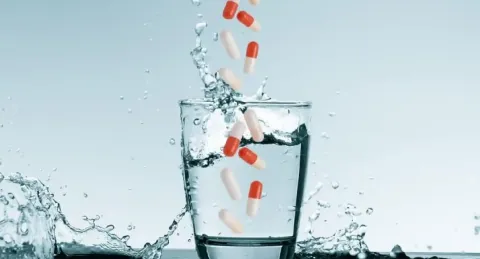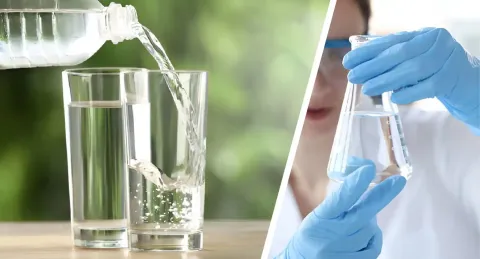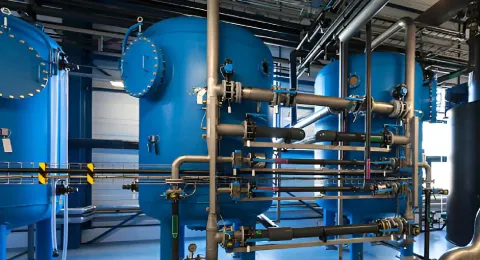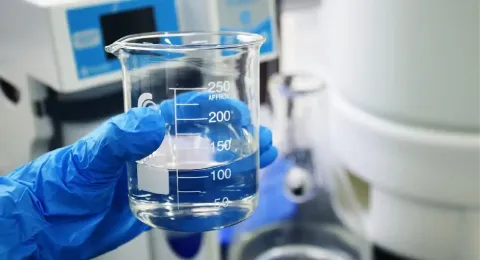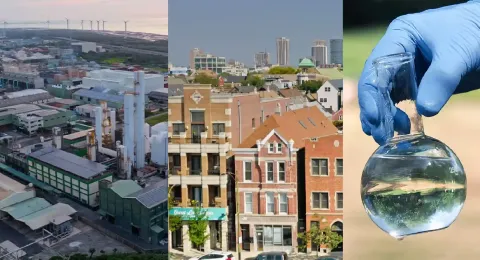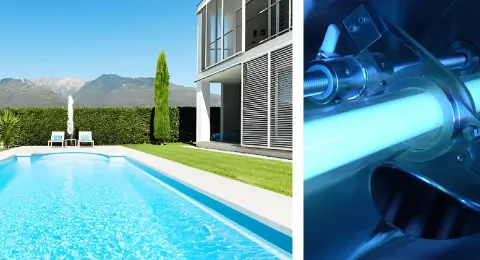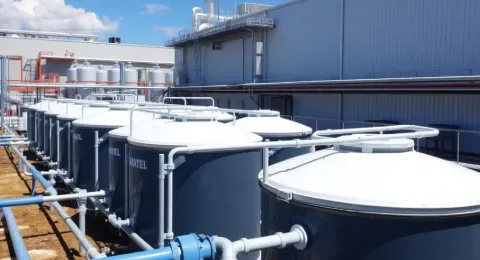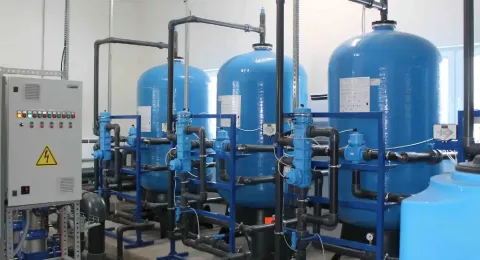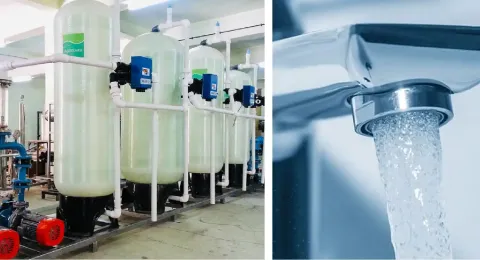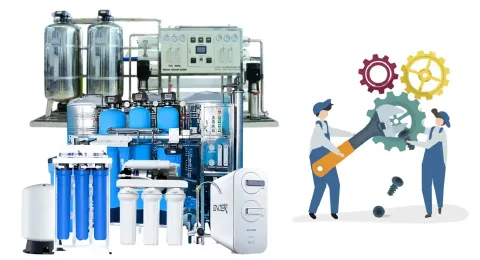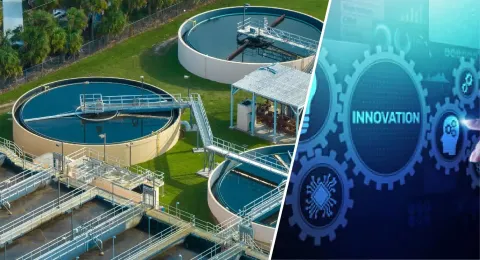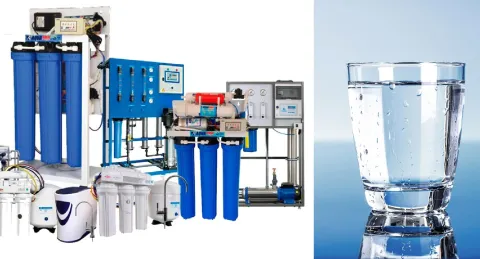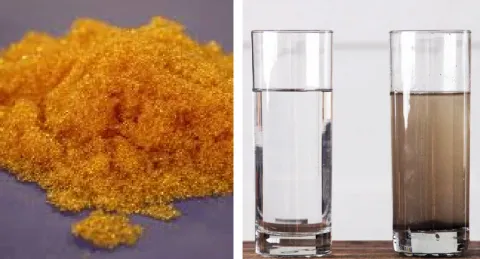Monitoring
and controlling water quality in industrial settings is critical for ensuring
operational efficiency, regulatory compliance, and the longevity of equipment.
Industrial processes often rely heavily on water for cooling, heating,
cleaning, or as a key component in manufacturing. Below is a comprehensive
guide on how to effectively monitor and control water quality in industrial
environments:
1. Define Water Quality Requirements
Each
industry has specific water quality needs based on its processes and equipment.
Define the required parameters, such as:
- pH
levels: Prevent scaling or corrosion.
- Total
Dissolved Solids (TDS): Measure mineral and salt content.
- Hardness:
Minimize scale formation in boilers and cooling towers.
- Microbial
Contaminants: Control bacteria, algae, and biofilms.
- Chemical
Contaminants: Monitor for heavy metals, chlorides, or
sulfates.
2. Set Up a Monitoring System
Monitoring
water quality in real-time or at regular intervals is essential for identifying
and addressing potential issues before they escalate.
Monitoring Methods
- Manual
Testing:
- Use
test kits or portable meters to measure parameters such as pH, TDS, and
chlorine levels.
- Regular
sampling for laboratory analysis to check for heavy metals, organic
contaminants, or microbial presence.
- Automated
Monitoring:
- Install
sensors and online analyzers to continuously monitor water quality
parameters.
- Integrate
with industrial control systems (SCADA) for real-time alerts and data
logging.
- Periodic
Inspections:
- Schedule
inspections to verify the performance of water treatment systems and
identify scaling, corrosion, or fouling.
3. Implement Water Treatment Processes
To
control water quality, deploy appropriate treatment methods tailored to your
industrial needs:
Primary Treatments
- Filtration:
- Sand
or multimedia filters to remove suspended solids.
- Cartridge
or membrane filters for finer particulate removal.
- Sedimentation:
- Settling
tanks to remove heavy particulates and sludge.
Secondary Treatments
- Water
Softening:
- Ion
exchange systems to reduce hardness and prevent scale buildup.
- Reverse
Osmosis (RO):
- Removes
dissolved salts, heavy metals, and contaminants for ultra-pure water.
- Deionization:
- For
industries requiring high-purity water, such as electronics or
pharmaceuticals.
Advanced Treatments
- UV
Disinfection:
- Destroys
microorganisms without adding chemicals.
- Ozone
Treatment:
- Oxidizes
organic contaminants and controls microbial growth.
- Chemical
Dosing:
- Use
corrosion inhibitors, biocides, and anti-scaling agents to protect
systems.
4. Optimize Process Control
Efficient
process control minimizes water quality fluctuations and ensures consistent
performance.
- Automation:
- Use
programmable logic controllers (PLCs) or distributed control systems
(DCS) to regulate water flow, pressure, and chemical dosing.
- Flow
Control:
- Maintain
adequate water circulation to prevent stagnation and sediment buildup.
- Temperature
Management:
- Ensure
proper heat transfer in boilers or cooling towers to prevent thermal
stress.
5. Manage and Treat Wastewater
Proper
wastewater management is essential to comply with environmental regulations and
minimize pollution.
- Pre-Treatment:
- Remove
solids, grease, and oils before discharging or further treating
wastewater.
- Chemical
Treatment:
- Neutralize
harmful chemicals or adjust pH to meet discharge standards.
- Biological
Treatment:
- Use
aeration tanks or bioreactors to treat organic contaminants.
- Water
Recycling:
- Install
advanced filtration or RO systems to recycle treated water for reuse.
6. Train Personnel
Educate
employees on the importance of water quality and how to operate and maintain
monitoring and treatment systems effectively. Training should cover:
- Sampling
and testing procedures.
- Recognizing
signs of water quality issues (e.g., scaling, fouling).
- Operating
automated control systems.
7. Maintain Equipment Regularly
- Inspect
and Clean Filters: Prevent clogging and maintain flow
efficiency.
- Descale
and Flush Systems: Remove scale and biofilm buildup from
boilers, cooling towers, and pipelines.
- Replace
Worn Components: Regularly check and replace membranes, UV
lamps, or ion exchange resins.
8. Use Smart Technologies
Integrate
smart technologies to enhance monitoring and control:
- IoT
Sensors:
- Collect
data on parameters like pH, TDS, or temperature in real-time.
- Predictive
Analytics:
- Use
machine learning to predict potential water quality issues based on
historical data.
- Cloud-Based
Monitoring:
- Access
water quality data remotely and receive alerts for anomalies.
9. Stay Compliant with Regulations
Comply
with local, national, and industry-specific water quality standards. Regular
audits and third-party testing help ensure compliance.
Common Standards
- EPA
(Environmental Protection Agency): Regulates industrial water
discharge.
- ISO
Standards: Specific standards for water quality in
industries like food, pharma, and electronics.
- ASHRAE
Guidelines: For managing water quality in HVAC systems.
10. Conduct Regular Reviews
Periodically
review and optimize your water quality management program to address changing
operational needs or regulatory requirements. Use insights from data analysis
to improve treatment efficiency and reduce costs.
Benefits of Effective Water Quality Monitoring and
Control
- Operational
Efficiency:
- Minimizes
downtime caused by equipment failure or process disruptions.
- Cost
Savings:
- Reduces
energy consumption, maintenance costs, and chemical usage.
- Regulatory
Compliance:
- Avoids
fines and ensures adherence to environmental standards.
- Extended
Equipment Lifespan:
- Protects
boilers, cooling towers, and pipelines from damage due to scaling or
corrosion.
- Environmental
Sustainability:
- Reduces
water wastage and pollution, contributing to corporate sustainability
goals.
Conclusion
Monitoring
and controlling water quality in industrial settings is a multi-faceted process
involving real-time monitoring, effective treatment systems, and regular
maintenance. By integrating smart technologies, automating processes, and
adhering to industry regulations, industries can ensure optimal water quality,
reduce costs, and improve operational efficiency.





